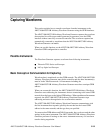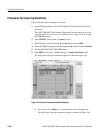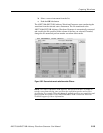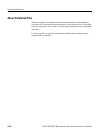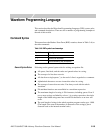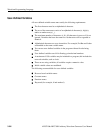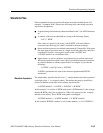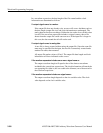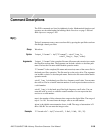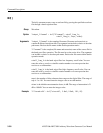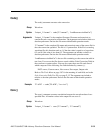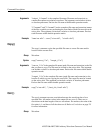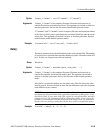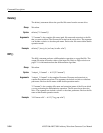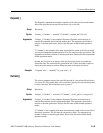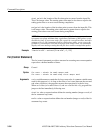
AWG710&AWG710B Arbitrary Waveform Generator User Manual 3-189
Command Descriptions
The WPL commands are listed in alphabetical order. Mathematical functions and
operators are described under the headings Math Functions on page 3-200 and
Math Operators on page 3-202.
Bpf( )
The bpf() statement creates a new waveform file by passing the specified waveform
file through a band–pass filter.
Group
Waveform
Syntax
"output_filename" = bpf("filename1", cutoff_freq_lo,
cutoff_freq_hi, taps, atten)
Arguments
"output_filename" is the complete file name (file name and extension) to contain
the filtered waveform data. The argument can include a relative or absolute path
name. Enclose the file name within double quotation marks.
"filename1" is the complete (file name and extension) name of the source file for
the band–pass filter operation. The file must be on the active drive. The argument
can include a relative or absolute path name. Enclose the file name within double
quotation marks.
cutoff_freq_lo is the band–pass filter low–frequency cutoff value. You can enter
the value as a real or scientific notation number or as an expression that resolves to
a valid number.
cutoff_freq_hi is the band–pass filter high–frequency cutoff value. You can
enter the value as a real or scientific notation number or as an expression that
resolves to a valid number.
taps is the number of delay elements that composes the digital filter. The range of
taps is 3 to 101. You must enter the integer value as an odd number.
atten is the inhibit zone attenuation factor, in dB. The range of attenuation is 21
dB to 100 dB. You can enter the integer value.
Example
"filtered.wfm" = bpf("sine.wfm", 3.0e6, 5.0e6, 101, 35)



